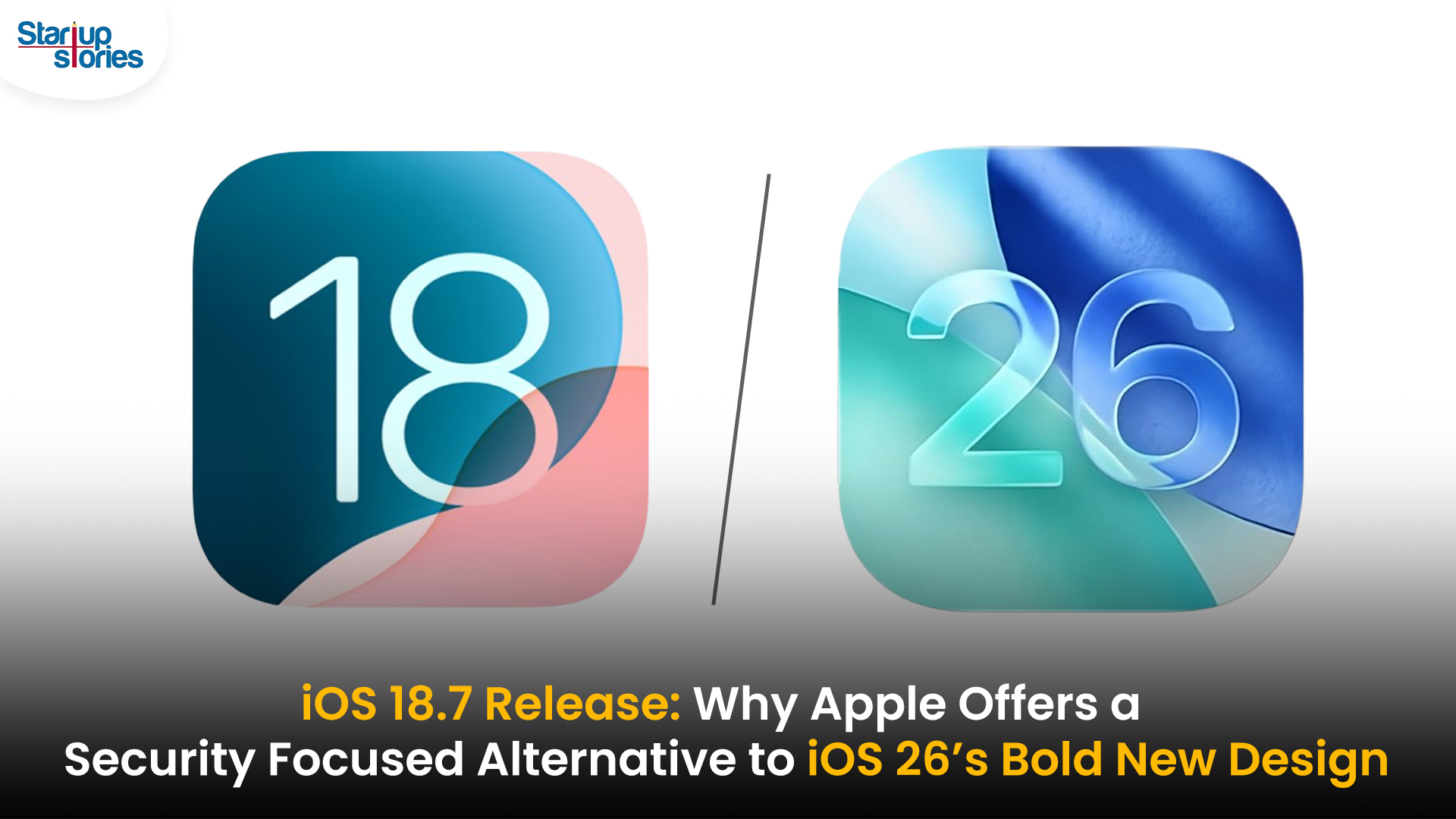Tech
Best Blockchain Based Startups To Take Notice Of This Year

The blockchain industry isn’t just booming, but is changing the way different industries function right now. Not only has it opened the doors for new developments, it has also helped create new startups with an interesting edge. Check out the hottest blockchain based startups which are making their presence felt this year.
Best blockchain based startups to take notice of this year:
1. Shapeshift

Not a currency exchange startup, but an exchanger instead, Shapeshift converts more than 100 cryptocurrencies into digital money. The only drawback with this startup is, while the conversion is quick and hassle free, there is still a problem of anonymity because people have been known to convert money without providing records of any kind. However, if this bug gets fixed, Shapeshift is definitely one of the hottest blockchain startups right now!
2. Enlte – Power To People

Launched in March 2018, this startup aims to be the unifier between businesses and users. Working as a one stop connecting point, EnIte includes location between networks, augmented reality and Bluetooth Low Energy (BLE) notifications. If all goes well for this startup, they can quite easily become one of the best blockchains in the world.
3. Somish

Founded in India in the year 2006, Somish works with technology and product development. For almost 13 years now, this startup has been constantly servicing their customers by redesigning, developing and implementing automation systems. Created at a time when blockchain wasn’t at such a high position as it is now, Somish has created quite a strong name for itself in the blockchain world by being recognised at multiple places for the kind of work they do.
4. Chain

Based out of the United States, Chain is working on creating a crypto ledger system for the financial sector. Apart from this, this startup also works with both private and public sector companies. At the moment, Chain gets support from companies like NASDAQ, Citigroup and Capital One. By being used for mobile wallets, ride sharing platforms and crypto exchange platforms, Chain is slowly but surely making its way to the top.
With blockchain infiltrating literally every major industry, it comes as no surprise so many startups are using it to better their work. If you think we missed mentioning any other blockchain startups like these, comment and let us know!
Tech
Paytm Grants ₹16.7 Crore ESOPs To Employees Under 2019 Stock Option Plan

Paytm parent One 97 Communications has granted fresh employee stock options (ESOPs) worth about ₹16.7 crore to eligible staff under its 2019 ESOP scheme, highlighting a stronger push toward employee ownership and retention. The grant covers 1,23,908 options, each convertible into one equity share with an exercise price of ₹9, significantly below the prevailing market price. At Paytm’s recent share price levels, this translates into a notional value of around ₹16.6–16.7 crore for employees.
The ESOPs are designed to align employee incentives with Paytm’s long-term growth, giving high-performing team members a direct stake in future value creation. As the options vest and are exercised, eligible employees can participate in potential upside from Paytm’s expanding fintech and payments ecosystem, subject to standard ESOP vesting conditions. The company has also confirmed that the scheme complies with SEBI’s share-based benefit regulations.
This ESOP grant comes soon after Paytm’s payments arm secured key RBI approvals to operate as a payment aggregator across online, offline and cross-border transactions, strengthening its regulated payments stack. Coupled with rising operating revenues, the fresh stock options signal management’s continued focus on attracting and retaining top talent even as profitability remains under pressure. For SEO, key phrases around “Paytm ESOP grant,” “₹16.7 crore employee stock options,” and “One 97 Communications employee ownership” capture the core update for search and news discovery.
Latest News
Apple’s iOS 18.7 vs iOS 26: Which Update Should You Choose for Your iPhone in 2025?

Apple’s recent iOS 18.7 rollout provides a secure alternative to the visually revamped iOS 26, empowering iPhone users to choose between system stability and next-generation features. While iOS 18.7 focuses on important security updates and bug fixes, it maintains the familiar iOS experience for users of older devices like iPhone XS, XS Max, XR, and SE models up to the 16e. The update is lightweight—about one-fifteenth the size of iOS 26—which means quicker downloads and less storage consumption. It’s designed for reliability and fast installation, making it ideal for users who prioritize a stable and secure operating system over design changes.
In contrast, iOS 26 introduces Apple’s ambitious “Liquid Glass” interface with a transparent look across apps, enhanced widget and lock screen customization, smarter Siri, and improved camera controls. These innovations, however, come with a larger update size and compatibility exclusive to newer iPhones beginning from the iPhone 11 series. While early adopters can enjoy the futuristic interface and AI-powered upgrades, major OS launches may present initial bugs or app compatibility issues that cautious users typically wish to avoid.
Choosing between iOS 18.7 and iOS 26 depends on each user’s priorities—those seeking guaranteed stability and fast security fixes should consider sticking with iOS 18.7, while users excited about premium features and visual changes should migrate to iOS 26 if their device supports it. Both updates are available through Software Update settings, and Apple will support iOS 18.7 for only a limited duration, eventually encouraging all users to transition to the latest platform. This dual update strategy ensures every iPhone user can safely update their device for a seamless and secure experience in 2025.
Tech
Apple’s iOS 26 to Automatically Pause FaceTime Calls Upon Nudity Detection

Apple’s upcoming iOS 26 introduces a new privacy-focused safety feature for FaceTime that automatically pauses both video and audio calls when nudity is detected on camera. This feature, discovered in the iOS 26 developer beta, is part of Apple’s expanded Communication Safety suite aimed primarily at protecting children from exposure to inappropriate content during live video chats. When nudity is detected, FaceTime freezes the call and displays a warning message, allowing users to either resume or end the call.
The nudity detection runs entirely on-device using advanced machine learning, ensuring that no images or videos are sent to Apple’s servers, thereby preserving user privacy. Although originally designed for child accounts as part of family safety tools announced at WWDC 2025, the feature currently appears active on all accounts in the beta version, including adults, which has sparked discussion about its broader application. Apple stresses that this local processing method keeps user data private while providing real-time protection against sensitive content during FaceTime calls.
Alongside this new safety measure, iOS 26 brings several other updates across the Apple ecosystem, including a new Liquid Glass design and enhancements to Messages, Wallet, and CarPlay. While the FaceTime nudity detection feature has not yet been confirmed for the final public release, its presence in the beta underscores Apple’s commitment to balancing user safety with privacy in an increasingly connected world. The full rollout later this year will clarify how widely the feature will be applied and whether users will have control over its activation













Mkpkzxff
May 27, 2025 at 3:02 am
Explore the ranked best online casinos of 2025. Compare bonuses, game selections, and trustworthiness of top platforms for secure and rewarding gameplaycasino slot machine.
J88
November 5, 2025 at 5:51 pm
Đến với J88, bạn sẽ được trải nghiệm dịch vụ cá cược chuyên nghiệp cùng hàng ngàn sự kiện khuyến mãi độc quyền.
GO88
November 6, 2025 at 6:45 pm
Tham gia cộng đồng game thủ tại Go88 để trải nghiệm các trò chơi bài, poker phổ biến nhất hiện nay.
站群程序
November 8, 2025 at 8:35 pm
搭载智能站群程序,自动化搭建与管理,为SEO项目提供核心驱动力。站群程序
Kuwin
November 9, 2025 at 9:08 am
kuwin sở hữu kho game đa dạng từ slot đến trò chơi bài đổi thưởng, mang đến cho bạn những giây phút giải trí tuyệt vời.
MM88
November 14, 2025 at 4:38 am
Với giao diện mượt mà và ưu đãi hấp dẫn, MM88 là lựa chọn lý tưởng cho các tín đồ giải trí trực tuyến.
MM88
November 25, 2025 at 10:58 am
Khám phá thế giới giải trí trực tuyến đỉnh cao tại MM88, nơi mang đến những trải nghiệm cá cược thể thao và casino sống động.
jili slot free 100
December 18, 2025 at 6:21 pm
jili slot free 100 jili slot free 100
lvxxxvbs
February 4, 2026 at 7:51 pm
https://askoff.ru
EnriqueKix
February 5, 2026 at 2:10 am
phd in clinical laboratory science https://otvetnow.ru brokerage service